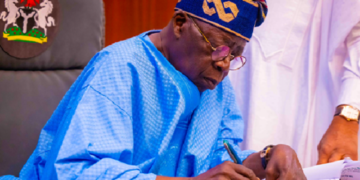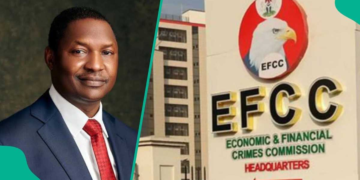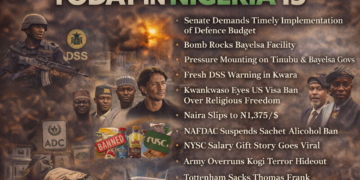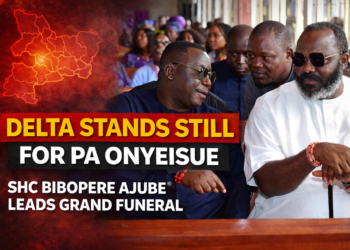The Nigerian government has issued a stern warning to its employees about the consequences of leaking official documents, a measure that critics argue could stifle whistleblowing and the exposure of corruption within the government. George Akume, Secretary to the Government of the Federation (SGF), emphasized that unauthorized disclosures are punishable offenses during a workshop organized by the Bureau for Public Service Reforms (BPSR) and the Office of the Government of the Federation (OSGF) on Tuesday.
Akume, represented by Permanent Secretary Nnamdi Mbaeri, highlighted the legal repercussions, stating that leaking sensitive documents without proper authority constitutes a felony. He pointed out that neither the Constitution nor the Freedom of Information Act provides a defense for such actions.
The warning comes despite Nigeria having a whistleblower protection law. A recent investigation by PREMIUM TIMES revealed that whistleblowers often face severe repercussions for exposing government wrongdoings, contributing to a culture of secrecy that allows corruption to thrive. Anti-corruption experts and advocates have repeatedly stressed that transparency is essential to combat corruption effectively.
The workshop, themed “Renewing hope and strengthening of national unity through effective communication and the role of the Official Secret Acts in maintaining confidentiality and national security,” aimed to reinforce the importance of confidentiality. Akume recalled past measures to curb information leaks, including service-wide circulars issued in August 2021 and February 2024, prohibiting the unauthorized circulation of official documents.
Section 97 (2) of the Criminal Code Act of Nigeria stipulates that public service employees who abstract or copy official documents without authorization are guilty of a misdemeanor, punishable by up to one year in prison.
Akume also criticized civil society organizations (CSOs) for allegedly using the Freedom of Information Act to harass and intimidate public officers, calling for regulatory measures to address these issues. He commended the BPSR for organizing the workshop, underscoring the government’s commitment to disseminating accurate information.
BPSR Director-General Dasuki Arabi urged participants to familiarize themselves with the Official Secrets Act and to communicate government policies and programs effectively. He emphasized the need for proactive communication to prevent misinformation and ensure that citizens are well-informed about government initiatives.
“Your role as communication managers in MDAs is crucial, especially in our increasingly complex information ecosystem,” Arabi stated. “Accurate and prompt information delivery is essential and cannot be compromised as its impact on service delivery and governance is profound.”
The workshop underscored the delicate balance between maintaining confidentiality and promoting transparency, highlighting the ongoing challenges in Nigeria’s fight against corruption and the protection of whistleblowers.

































